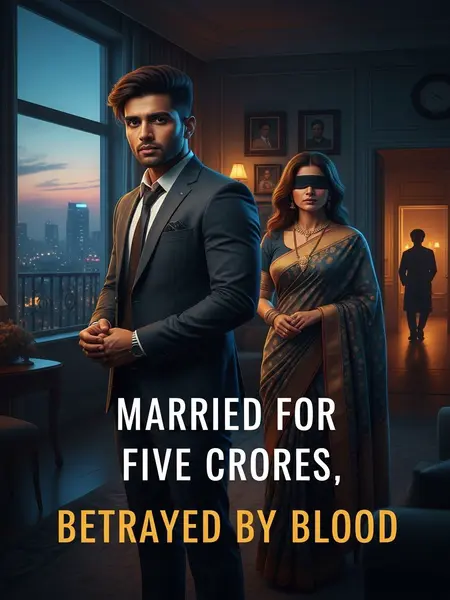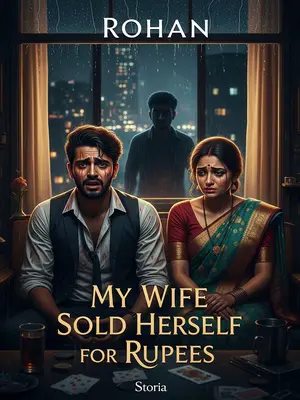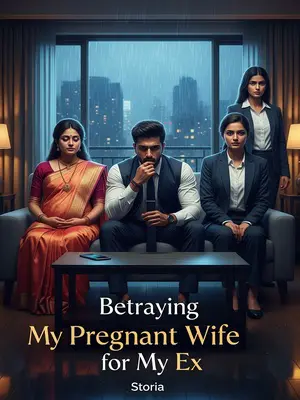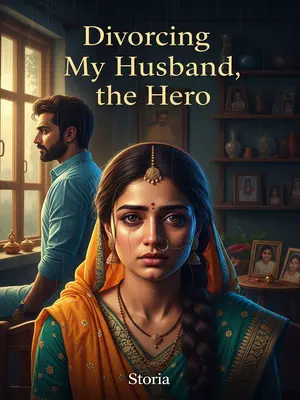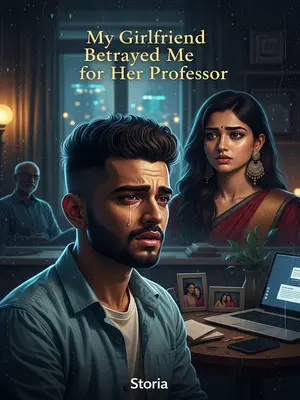Chapter 2: Meera’s Truth
Meera’s story:
My name is Meera. That’s my mother’s name. My father was never in the picture.
There was a hint of pride in her voice, but also an ache. In India, being raised by a single mother means neighbours’ whispers, curious glances.
My mother died three years ago, leaving me alone.
She paused, like someone brushing a hand over an old scar.
I was just a blind girl, but after my mother passed, she left me a lot of money. So I became a blind girl with money.
Her lips twisted in a bitter smile. “What’s the use, na?”
As they say, ghar ki murgi daal barabar. Having money became a curse.
Her words carried the weight of every family that values property more than people.
When I was sixteen, my relatives fought over guardianship. I knew they only wanted my money, nothing else.
She described uncles and aunties arriving with sweets and fake smiles, bickering later about who should ‘look after’ her.
Their endless fighting and scheming pushed me into depression.
Her voice trembled. “Sometimes, I wished I could just disappear.”
I had suicidal thoughts so many times. Once, I stood on the balcony grill.
The image made my heart clench—a blind girl on a Delhi balcony, teetering on the edge.
But my cousin pulled me back.
The only one who ever truly saw her, in every sense.
He was the only relative who was ever good to me, always had been.
While others fought over property, he seemed the lone exception.
When I was little and couldn’t see, he would read me storybooks.
Her face brightened, remembering evenings filled with Panchatantra tales, the lamp’s soft glow, her cousin’s gentle voice.
I loved his family’s tabby cat, but it was wild and always out. Whenever I visited, he’d hunt it down so I could pet it.
She laughed softly. “He once climbed the neighbour’s wall at midnight just to catch that silly cat for me.”
He was always good to me.
She repeated it, as if convincing herself.
He told me that at sixteen, with my own finances, I didn’t need a guardian.
He spoke with such confidence, even quoting some old law book from their family’s trunk.
Only then did the relatives back off, though their faces were long and sour, “like someone forced to eat karela sabzi.”
My cousin stayed, always by my side, taking care of me like when I was small.
He’d make my morning tea, remind me about medicine, be my eyes in the world.
Back then, I’d just lost my mother and was drowning in depression. If not for him, I don’t know if I’d have survived.
There was a pause. In India, depression is a silent wound, but her voice made it real.
After high school, I didn’t go to college. My cousin urged me to study or at least step out, but I was too withdrawn to leave the house.
She described her world—a two-room flat, radio always on, textbooks gathering dust. “Every time he came home, he brought me something—fruits, magazines, hope.”
At first, things were okay.
She drew a shaky breath.
But after I turned eighteen, I felt my cousin changing. He was still kind, but the air around him grew heavier.
She said his voice softened, but something in the way he lingered made her uneasy. She’d smell his perfume after he left, feel his footsteps pause at her door.
He started touching me—sometimes by accident, sometimes not. The way he breathed felt different.
I could almost see her shudder. In our families, some lines are never meant to be crossed.
The blind sense the air. Even if I couldn’t see, I could feel the atmosphere change when we were alone.
Her fingers twisted her dupatta. She paused, voice dropping to a whisper. “It’s like the whole house held its breath.”
I got scared and started avoiding him.
She locked her door, insisted on eating alone, made excuses to keep distance.
He noticed. I could sense his disappointment.
He’d linger in the corridor, sighing, his presence suddenly intrusive.
But he’s my cousin. No matter what, that’s not allowed—by law or by ethics.
The word “cousin” echoed in the air—a warning in every Indian household.
And I was grateful to him. My feelings were only ever family, nothing else.
She repeated it softly, as if reassuring herself.
Two months ago, he confessed his feelings. I refused him clearly.
She described the moment—hands shaking, voice breaking, answer firm. “No, Bhaiya. Never.”
I felt his sadness, but I had no choice.
She lowered her head, lips pressed tight.
Luckily, after a few days, he seemed his old self—cheerful, joking, as if nothing had happened.
She sounded almost hopeful.
I was relieved. I was always afraid of losing the only relative who was good to me.
Her voice cracked. “Even if he hurt me, I didn’t want to be alone.”
...
But after that, my illness worsened. Originally, with fluoxetine and olanzapine, my mood was improving.
She described the comfort of fewer dark days, sleeping through the night, believing things could change.
But recently, I kept hitting rock bottom, with chest tightness and headaches.
Her hands clutched her mother’s old dupatta, fingers digging in. “I thought maybe it was just grief, but it kept getting worse.”
When I called you, I already suspected something was wrong with my medicine.
She looked up, lips trembling. “I just needed someone to confirm I wasn’t going mad.”
And there was.
Her words trailed off. The silence was as thick as Delhi humidity in May.
---
